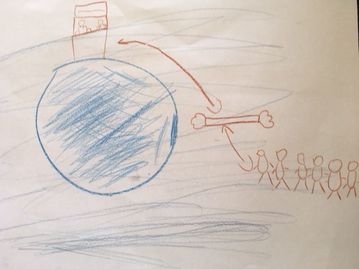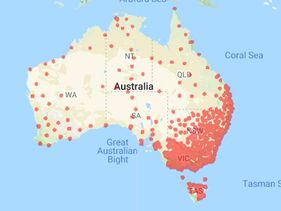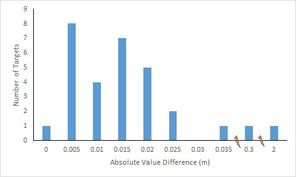I talk to a lot of people about diversity in the workplace, schools, and in teams more generally. I believe (and the research supports this) that diverse teams are more successful, so this is something that we need to embrace, not resist. Yet a common objection I hear is along the lines of 'I have nothing against diversity, but (there's always a but...) I just want the best person for the job!'
My question in response is 'how do you define 'the best person'?
The term 'the best' suggests that there will only ever be one person who fits that criteria. And of course we all want the best. But what if my version of the best is different from yours? Let me use an analogy of a netball team as this is something I'm very familiar with.
My netball team needs a new GS. One version of 'the best' person might be person A who has a 100% shooting average. You can't win a game if the goals don't go in, right? But what about person B who shoots at 90%, but also brings great leadership skills and can also play GK. Is person B lowering the teams' standards, or are they bringing an offering that may in fact be more valuable?
To have a look from a different point of view, I wrote the following little number inspired by a real life true story. Exaggerated and characters changed of course :)
Venus was one of the biggest and most well known chocolate companies in the galaxy. Their chocolate bars were extremely popular, and the time came to bring a new chocolate into their team.
The big boss team from Venus were excited to conduct interviews with suitable candidates. They were looking for a chocolate with high quality cocoa and the right balance of sugar. But they also wanted something a bit different and special to bring a new flavor to their team.
As the first chocolate candidate waltzed through the door, the team was impressed. Silky had exemplary cocoa references and was sweet to perfection. But the team felt that she was too similar to the rest of their chocolates. She certainly met their high standards, but would she add anything new?
The second candidate Zappy was equally well qualified. His cocoa levels exceeded requirements and his sweetness was in the Goldilocks zone. He was hard to fault and already looked very similar to the other chocolates, so the team was sure he would fit in well. But again, was he just a little too similar?
When the third candidate rustled into the room, the team was taken aback. Knobbly certainly looked very different to the rest of the chocolates. Their cocoa levels were lower than required, and the team wasn’t sure about the sugar balance either. Clearly Knobbly would drop their standards.
But Knobbly wasn’t going to be discarded so easily. They knew that the team was looking for something different, and they had a trick in their packet. For Knobbly wasn’t even a chocolate – she was pet food!
Knobbly convinced the team to diversify their ideas. To think outside the box. And to realise that embracing diversity wasn’t about lowering standards, but about reaching new heights in different areas.
Venus became one of the largest and most successful manufacturing companies in the galaxy.
My question in response is 'how do you define 'the best person'?
The term 'the best' suggests that there will only ever be one person who fits that criteria. And of course we all want the best. But what if my version of the best is different from yours? Let me use an analogy of a netball team as this is something I'm very familiar with.
My netball team needs a new GS. One version of 'the best' person might be person A who has a 100% shooting average. You can't win a game if the goals don't go in, right? But what about person B who shoots at 90%, but also brings great leadership skills and can also play GK. Is person B lowering the teams' standards, or are they bringing an offering that may in fact be more valuable?
To have a look from a different point of view, I wrote the following little number inspired by a real life true story. Exaggerated and characters changed of course :)
Venus was one of the biggest and most well known chocolate companies in the galaxy. Their chocolate bars were extremely popular, and the time came to bring a new chocolate into their team.
The big boss team from Venus were excited to conduct interviews with suitable candidates. They were looking for a chocolate with high quality cocoa and the right balance of sugar. But they also wanted something a bit different and special to bring a new flavor to their team.
As the first chocolate candidate waltzed through the door, the team was impressed. Silky had exemplary cocoa references and was sweet to perfection. But the team felt that she was too similar to the rest of their chocolates. She certainly met their high standards, but would she add anything new?
The second candidate Zappy was equally well qualified. His cocoa levels exceeded requirements and his sweetness was in the Goldilocks zone. He was hard to fault and already looked very similar to the other chocolates, so the team was sure he would fit in well. But again, was he just a little too similar?
When the third candidate rustled into the room, the team was taken aback. Knobbly certainly looked very different to the rest of the chocolates. Their cocoa levels were lower than required, and the team wasn’t sure about the sugar balance either. Clearly Knobbly would drop their standards.
But Knobbly wasn’t going to be discarded so easily. They knew that the team was looking for something different, and they had a trick in their packet. For Knobbly wasn’t even a chocolate – she was pet food!
Knobbly convinced the team to diversify their ideas. To think outside the box. And to realise that embracing diversity wasn’t about lowering standards, but about reaching new heights in different areas.
Venus became one of the largest and most successful manufacturing companies in the galaxy.





 RSS Feed
RSS Feed
